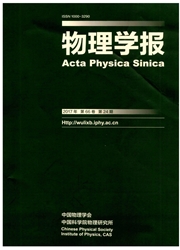

 中文摘要:
中文摘要:
将基本尺度熵的方法在时间上做多尺度化的扩展,并将其应用到心跳间隔序列的分析研究中.研究发现,健康人的心率变异性是小时间尺度下的模式特定性与大时间尺度下的模式丰富性相结合的,而充盈性心衰患者则正好相反.这说明充盈性心衰患者在小时间尺度下心脏动力系统的控制不力,导致随机性增加,而在大时间尺度下对外界环境变化反应又不够丰富,从而导致生命更容易受威胁.据此提出了以小时间尺度下的基本尺度熵值相对于大时间尺度下平台区基本尺度熵值的变异参数δ作为区分健康人和充盈性心衰患者的诊断依据.通过对72例健康人和44例充盈性心衰患者的计算,发现两组样本差异显著,证明了参数δ的有效性.
 英文摘要:
英文摘要:
Multiscale base-scale entropy(MBE) is used to analyze heart beat interval series of both congestive heart failure(CHF) sufferers and the healthy people. The results indicate that,in contrast to the higher base-scale entropy(BE) value in short time scale,the data of CHF sufferers have actually lower BE value compared with those of the healthy people in long time scale. This supports the view that CHF patients' heart beats are more random in short time scale due to impaired cardiac dynamic system,but are not versatile enough in long time scale to adapt to external impacts. More importantly,we found that δ,a parameter in MBE analysis,can be used to distinguish effectively the CHF patients from the healthy,which is proved in analysis of a database containing 72 healthy people and 44 CHF sufferers.
 同期刊论文项目
同期刊论文项目
 同项目期刊论文
同项目期刊论文
 期刊信息
期刊信息
